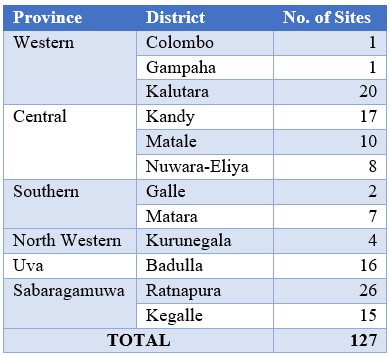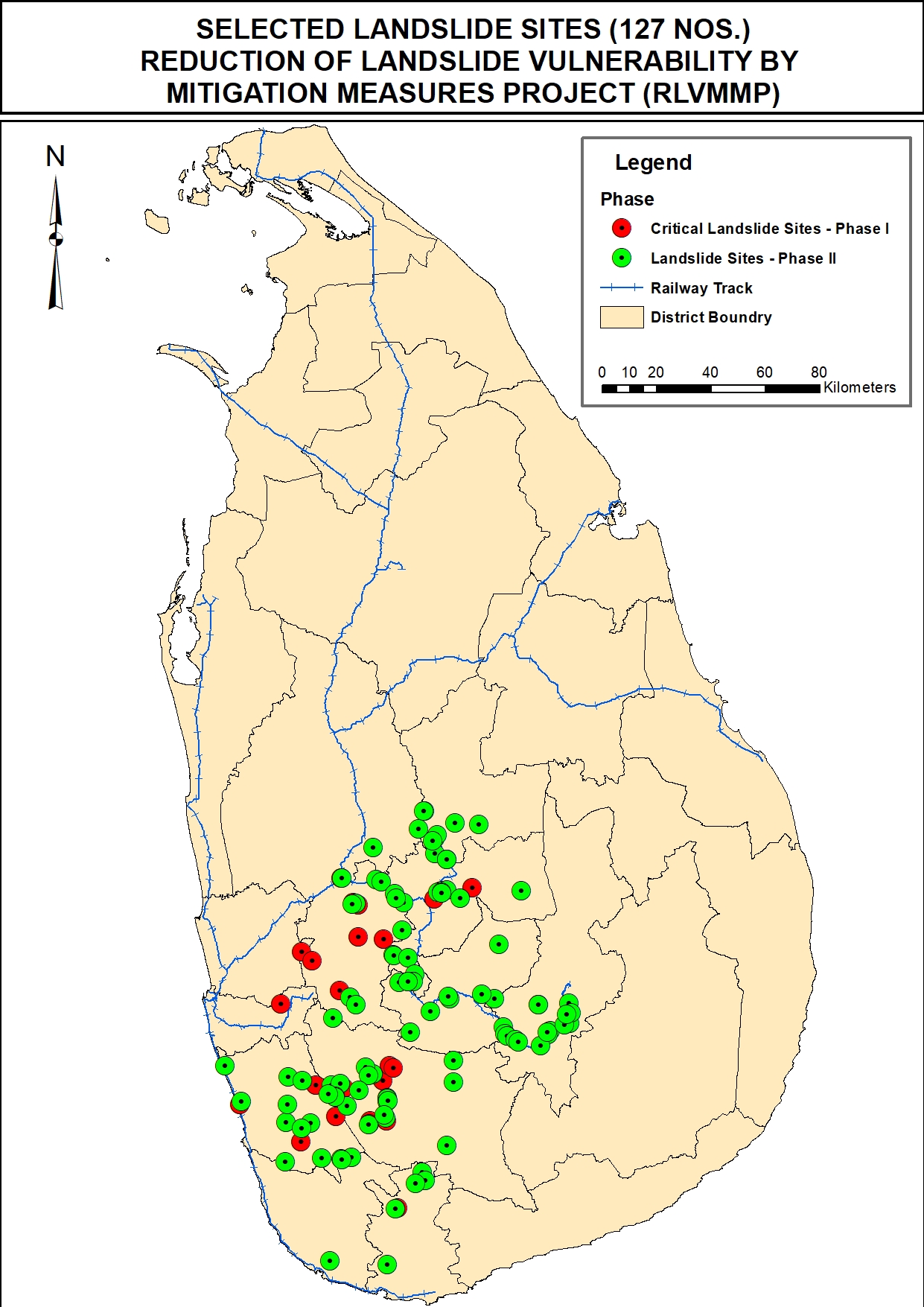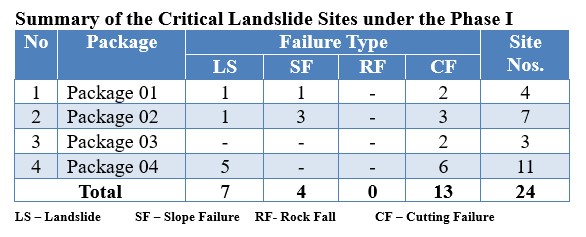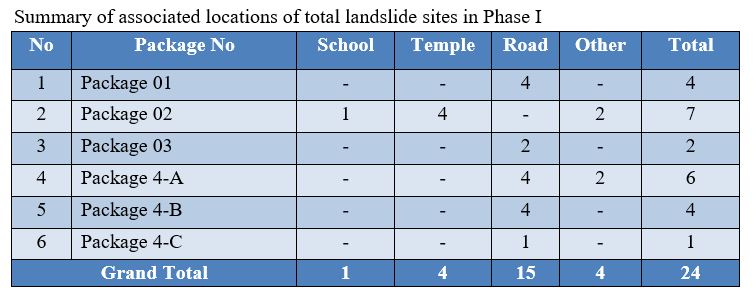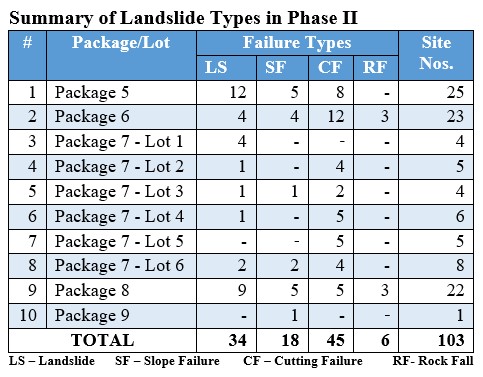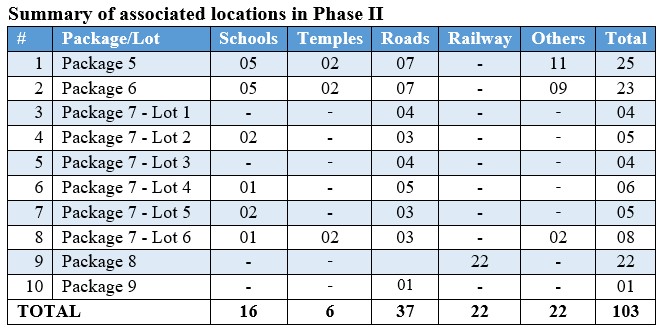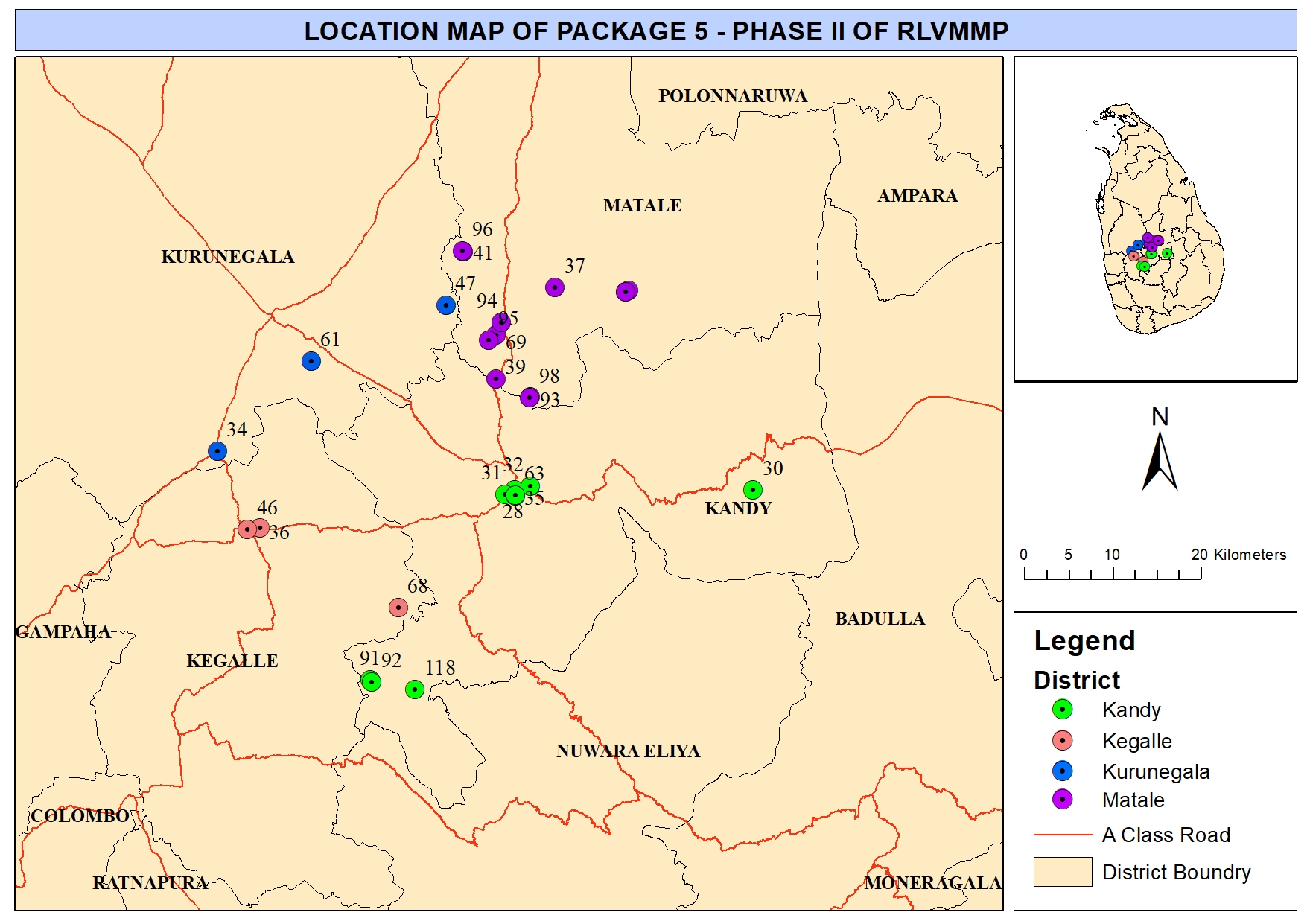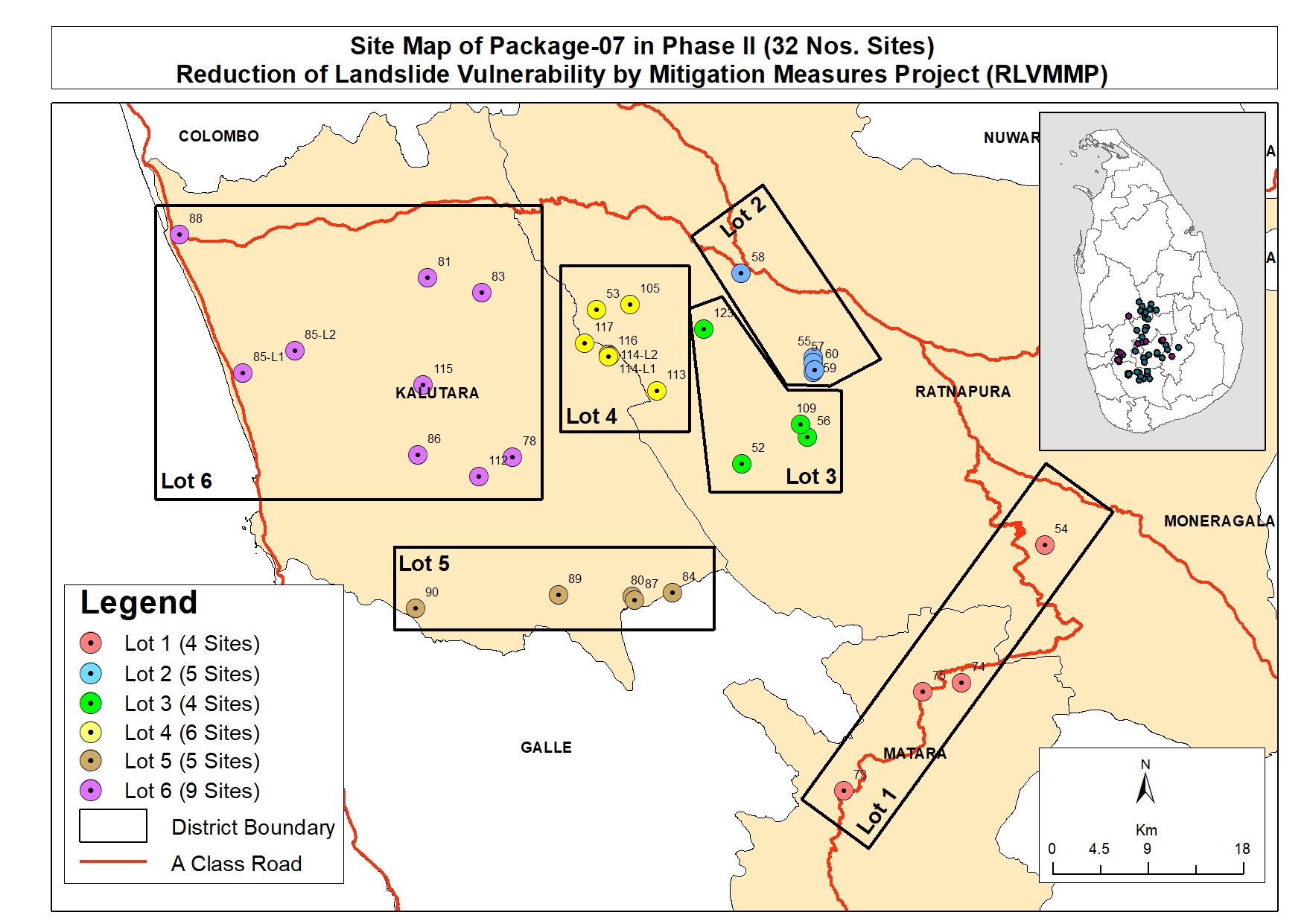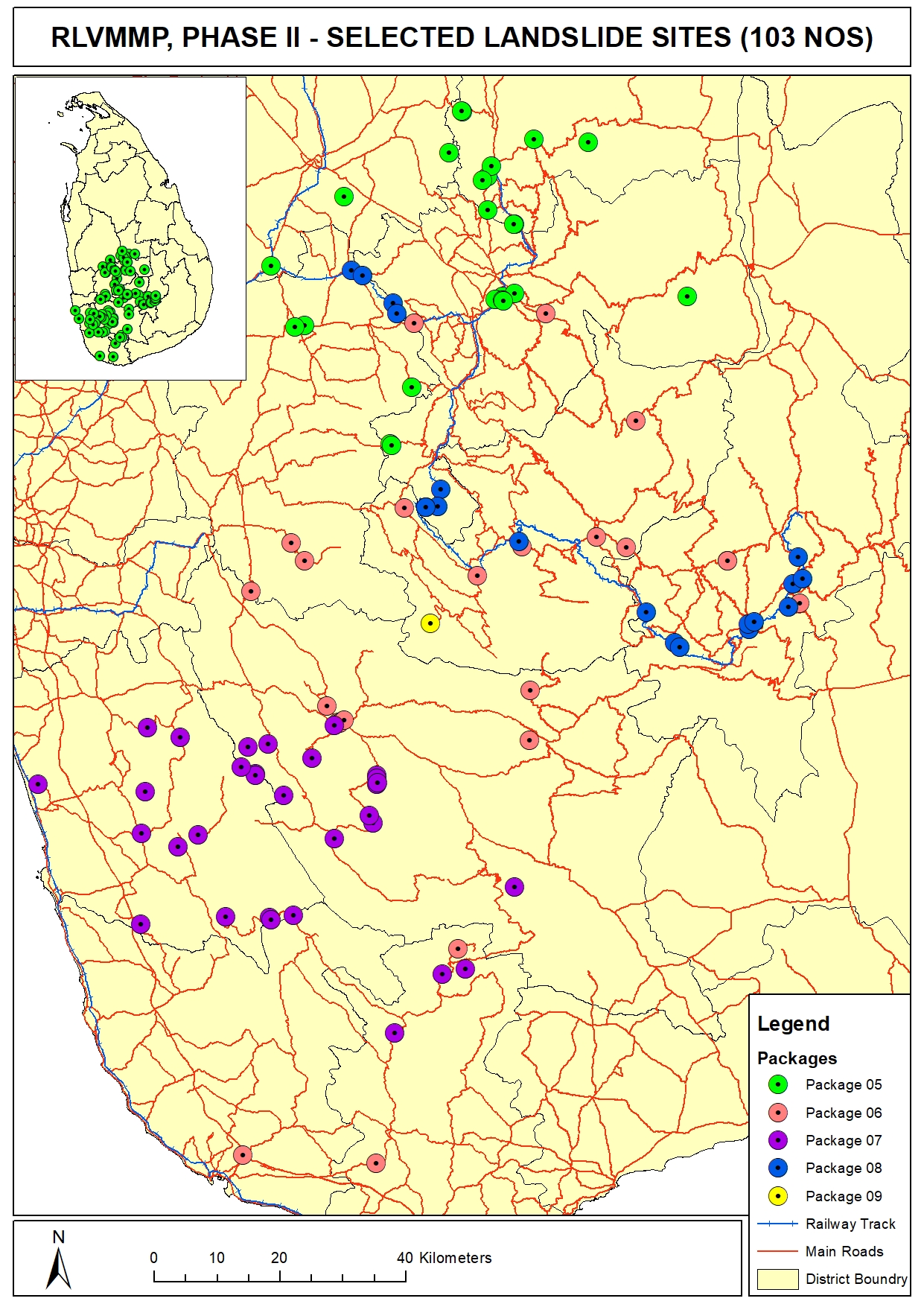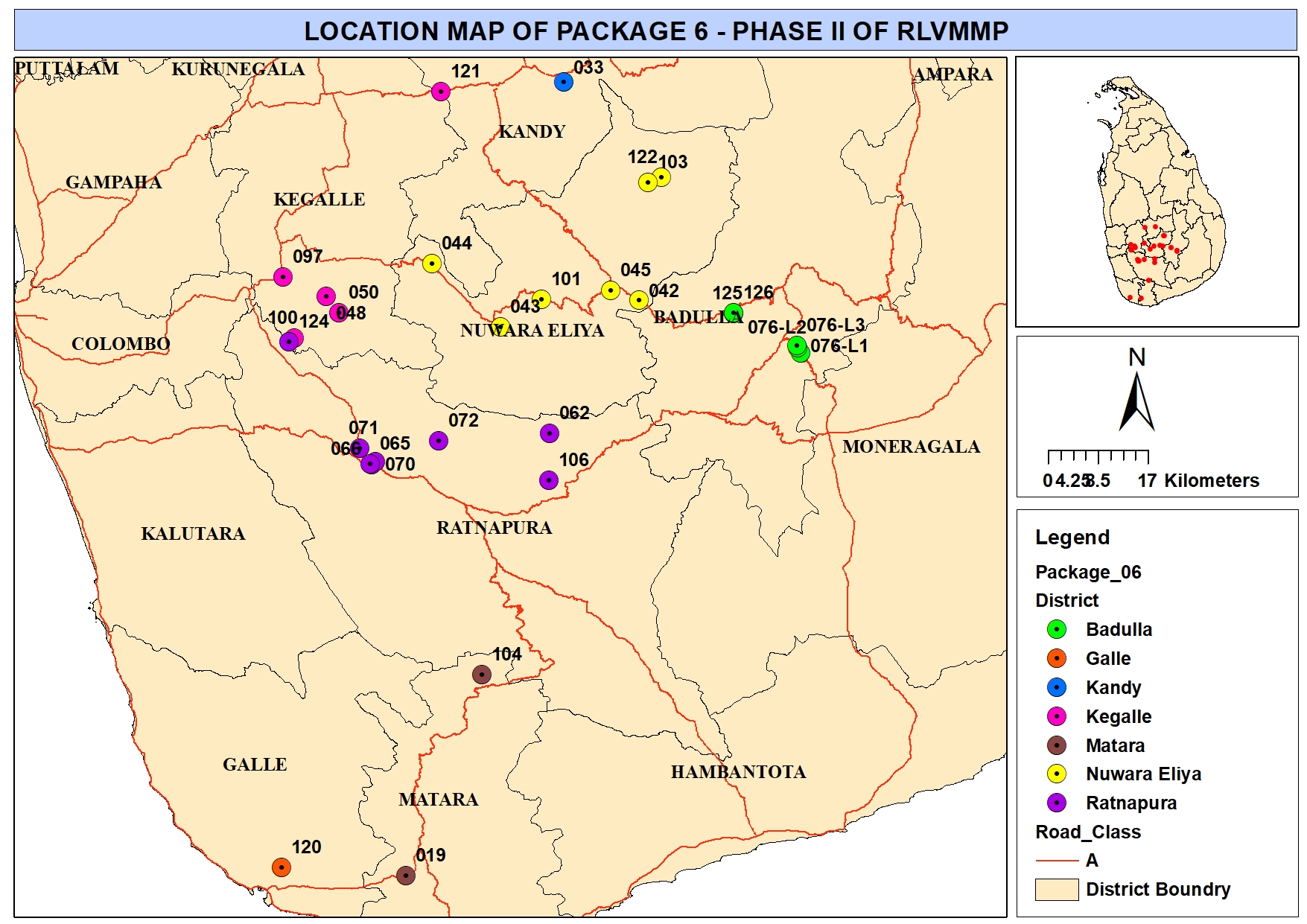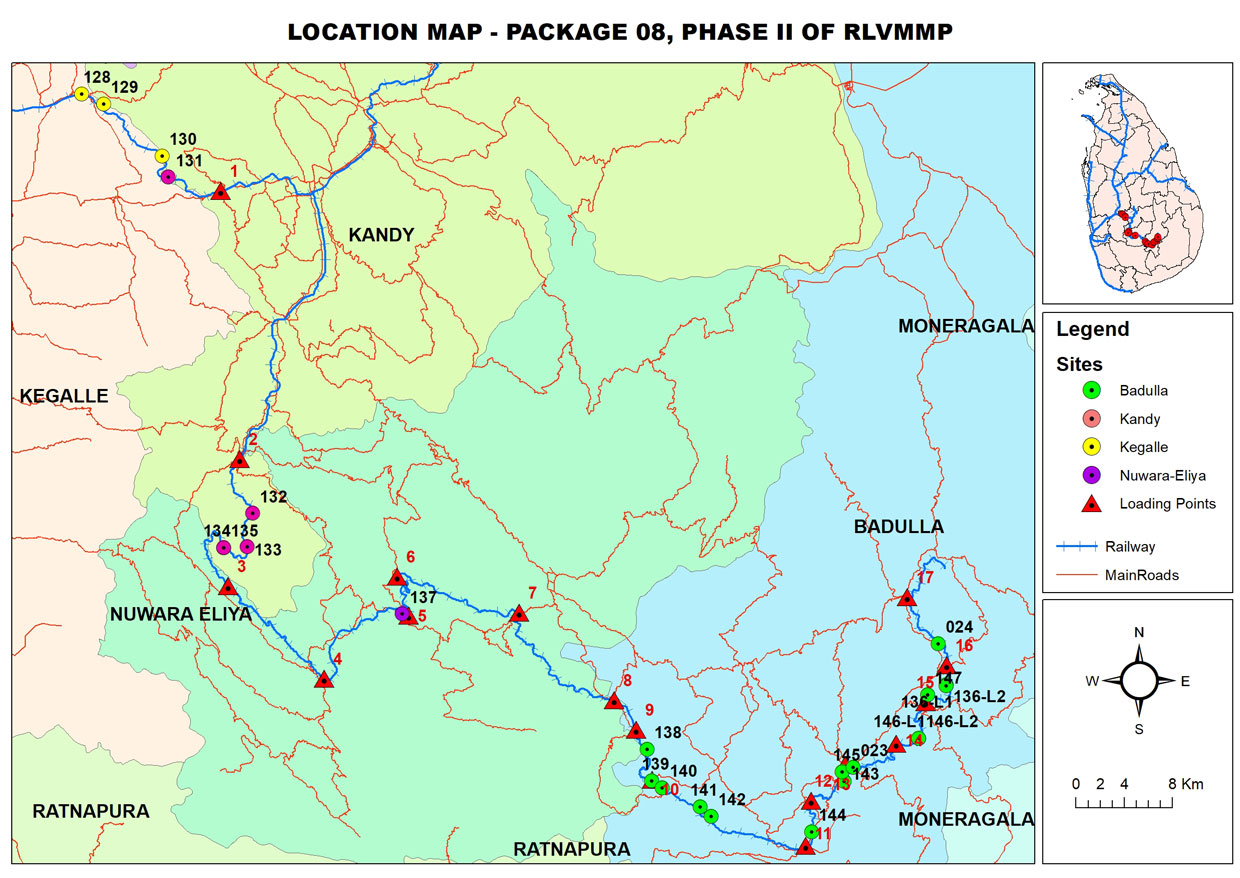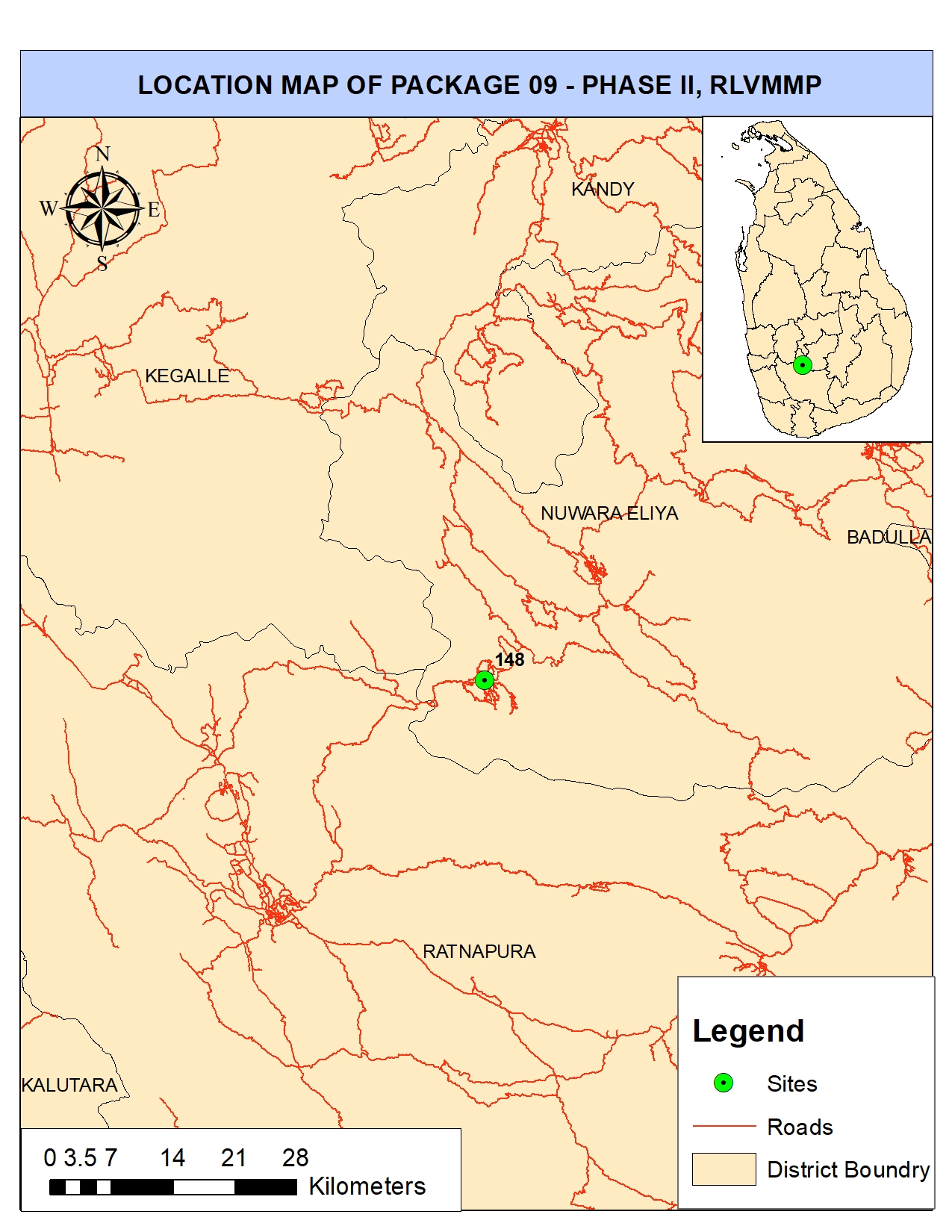|
Date of Approval to the proposal by NPD |
August 18, 2017 (NBRO/DG-PU/PP/31) |
|
Date of Approval from the Cabinet |
March 27, 2019 (19/0850/108/049-1) September 12, 2018 (CP18/1893/823/015) October 18, 2017 (CP17/2296/715/034) |
|
Project No. |
L0124A |
|
Borrower(s) Client/Executing Agency Implementing Agency |
The Democratic Socialist Republic of Sri Lanka Ministry of Defense/Ministry of Health National Building Research Organisation (NBRO)/Health System Response Project (HSRP) |
|
Sector(s) Subsector(s) |
Other Infrastructure Disaster Management |
|
Project Implementation Period (Indicative) |
Start Date: July 1, 2019 End Date: June 30, 2023 |
|
Project Cost with Financing Plan |
The estimated cost of the project is USD 101.3 Mn. AIIB Loan: USD 80 Mn. Government of Sri Lanka: USD 21.3 Mn. |
|
AIIB Loan (Size and Terms as proposed) |
USD 80 Mn - A Sovereign-backed Loan with a loan term of 30 years, including a grace period of 6 years |
|
Loan Negotiated Date |
February 25, 2019 |
|
Agreement Signed Date |
April 25, 2019 |
|
Loan Agreement Affective Date |
June 23, 2019 |
|
Loan Agreement |
Between THE DEMOCRATIC SOCIALIST REPUBLIC OF SRI LANKA and ASIAN INFRASTRUCTURE INVESTMENT BANK (AIIB) |
|
Expected Loan Closing Date |
December 31, 2023 |
The project “Reduction of Landslide Vulnerability by Mitigation Measures Project” (RLVMMP) is being identified as one of the positive steps taken by the Ministry of Defence (MoD) to achieve its vision 2025 strategy document.
The MoD is the executing agency and the National Building Research Organisation (NBRO) under the MoD is the implementing agency of this Project. The project is being financed by GOSL funds and by a loan from Asian Infrastructure Investment Bank (AIIB).
In the initial stage of the project, 147 priority sites have been identified. They comprise 117 sites identified by the district offices of the National Building Research Organisation (NBRO), 10 sites along major roads identified by the Road Development Authority (RDA) and 20 sites along the 208 km of the railway line from Rambukkana to Badulla-identified by Sri Lanka Railway (SLR) as being at high risk of landslides. The identification and prioritization of these sites have been based on an analysis of the visible characteristics of the terrain, climatic conditions and the potential threats that the landslide sites would pose to life, property, transport infrastructure and to the economy of the district and the country as a whole. The 13 districts include Badulla, Kalutara, Kandy, Kegalle, Kurunegala, Matale, Galle, Matara, Nuwara Eliya, Ratnapura, Gampaha, Hambantota and Colombo.
Considering the past economic situation of the country it was decided to reallocate resources by reducing some of the original scopes, to mitigate the impact of the economic crisis by allocating USD 30 million of the above funds towards Emergency Health-related requirements through a newly added project component. However, the restructured funds will facilitate to implementation of the crucial project components and the majority of the landslide mitigation sites. With the amendment to the loan agreement signed on July 1, 2022, at least 100 selected landslide-prone sites are to be completed. There are 128 priority sites that are expected to be completed under this project, including sites that have been designed.
Objective
The project objectives are to reduce risk and damage from landslides in Sri Lanka through the implementation of physical mitigation measures based on investigation/assessment and improvement of planning, regulation and instruments associated with landslide management and enhance the capacity to respond to urgent medical needs.
Results Indicators
The project result indicators include;
- The number of people protected from landslide hazards.
- The number of physical mitigation schemes constructed.
- Kilometers of existing roads and rail tracks are protected and open for traffic uninterrupted
- The number of policies and regulations related to landslide management improved.
- Health institutions/hospitals benefitting from the Emergency Component
Project Components
The Project is implemented under five main components.
Component 01 - 128 landslide-prone locations in the country are being protected by implementing mitigation methods in two phases.
Phase I - 24 critical sites in 10 landslide-prone districts of the island will be secured as soon as possible.
Phase II - Stabilize 104 landslide sites along the main roads, the upcountry railway line and other public places such as schools, temples, towns, and villages, etc.
Component 02 - Develop a legal framework related to landslides, formulate the necessary steps to establish those laws and raise awareness.
Component 03 - Upgrade the equipment, training and facilities required for the laboratories of the National Building Research Organization (NBRO).
Component 04 - Project Management Unit (PMU).
Component 05 - Emergency Health Assistance, at an estimated cost of USD 30 million.
Selected Landslide Sites (Total 127 Nos) for Reduction of Landslide Vulnerabilities by Mitigation Measures ProjectLandslides, slope failures, cutting failures and rockfalls have become increasingly frequent and severe, seriously affecting communities in the hilly central region of Sri Lanka. Therefore 127 landslide sites have been identified to mitigate under this project and the identified landslide locations are indicated in two different colors according to the phases of the project. PHASE I - Include 24 landslide sites in critical conditions requiring immediate rectification measures (points indicated in Red colour). PHASE II - Include 103 landslide sites selected from village areas, locations that directly affect major roads and upcountry railway lines (points indicated in Green colour). Distribution of all Sites within the Provinces/Districts
|
|
Project Cost and Financing Plan (USD Mn.)
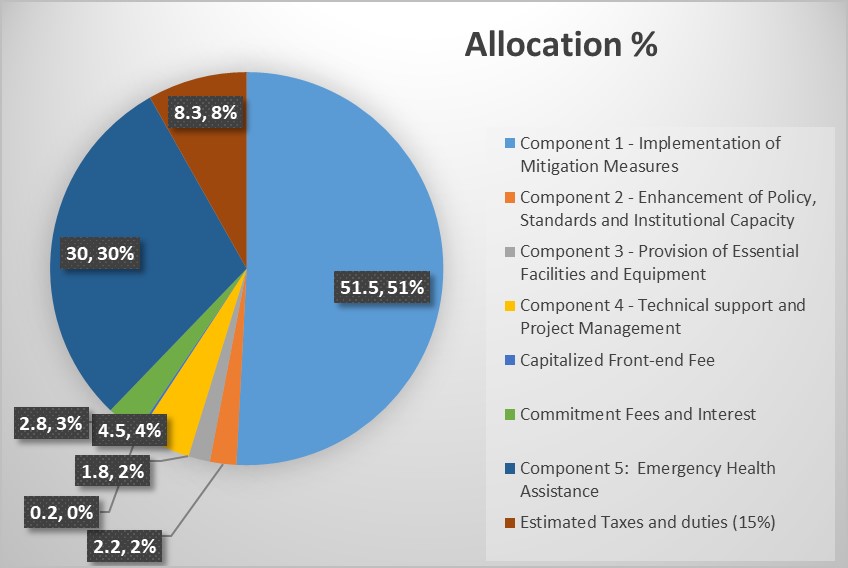
Executing and Implementing Agencies
The State Ministry of Internal Security, Home Affairs and Disaster Management will be the Executing Agency. The National Building Research Organisation (NBRO) under the State Ministry of Internal Security, Home Affairs and Disaster Management will be the Implementing Agency. The Project Management Unit (PMU) has been established by the State Ministry of Internal Security, Home Affairs and Disaster Management and NBRO to manage the day-to-day implementation of the project.
Project Management Unit
Given the complexity and technical challenges, the project requires a dedicated unit to provide day-to-day oversight and technical guidance. A Project Management Unit (PMU) has been established.
The PMU will be staffed with dedicated, qualified staff and consultants that have the necessary professional experience and proven expertise in the technical aspects of the project including procurement, financial management, environmental and social safeguards and health and safety issues. This will help ensure that the project can be implemented on time and within budget and meets the Asian Infrastructure Investment Bank’s (AIIB) technical, procurement, environmental, social and health & safety requirements. The PMU will be responsible for the following oversights activities:
- Monitoring of Field investigations, designs (including environmental, social, health & safety aspects) and preparation of tender documents.
- Procurement for all associated services (individual consultants and consulting firms), works (contractors) and goods related to the project, including the issuing, evaluation and recommendations for the award of contractors for the tenders.
- Implementation, quality assurance and control, the management of consultants and contractors, and the monitoring and evaluation of outputs.
- Financial management of the project, including disbursement.
- Monitoring and policy compliance with national and Bank environmental, social, health & safety laws, regulations, policies and standards.
- Coordination with other involved agencies, including the Roads Development Authority (RDA), Sri Lanka Railway Department and local authorities, etc. and acting as their technical and administrative representatives, in order to have all the landslide sites included and treated under a single management structure, providing consistency and integrity to the project’s physical subcomponents.
The PMU will be “lean,” focused on the management aspects and dedicated to the implementation of the project. NBRO as implementing agency will manage the project through the PMU and be responsible for the overall technical aspects of project implementation. State Ministry of Internal Security, Home Affairs and Disaster Management, as the executing agency, will provide guidance, and general assistance to support project implementation and will manage project funds. There will be no transfer of loan proceeds to NBRO.
Steering Committee
In addition, the Government of Sri Lanka (GoSL) will establish a Steering Committee to provide overall support to the project and specifically to guide the review and support for the development of new policies and standards relating to landslide management (Component 2). The Steering Committee will review the findings and recommendations arising from the studies and will formulate official recommendations for the GoSL. The Steering Committee will be chaired by the Secretary, State Ministry of Internal Security, Home Affairs and Disaster Management and will include representatives from the key government stakeholders currently involved in the response to landslides, including District Secretaries, Road Development Authority, Railway Department, Department of External Resources, other relevant departments of Ministry of Finance (MoF), and the line agencies responsible for services such as Ceylon Electricity Board (CEB), the Water Supply & Drainage Board, Ministry of Education and Local Governments, as needed.
Governance Structure of the Project
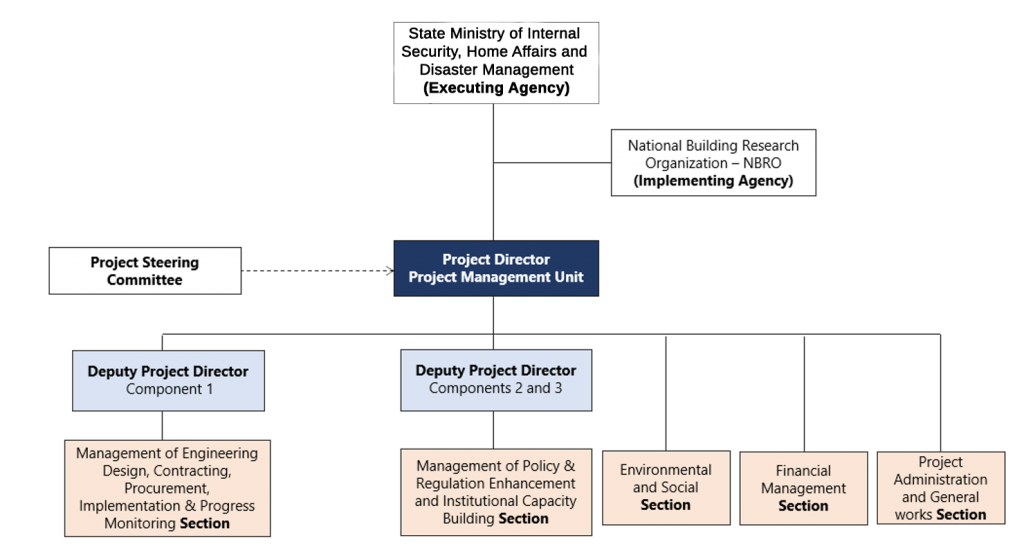
Team Members of the Project Management Unit
  Mr. Ravindra BalasooriyaSenior Geologist  Ms. Savitha RajanadanQA/QC Engineer  Ms. Kalpani BandaraProject Engineer  Mr. Sajith KuruvitaarachchiQuantity Surveyor  Ms. Kaushalya KumariManagement Assistant  Mr. Chandima RathnayakeOffice Aid |
 Vijith KodithuwakkuProcurement Specialist PMU  Ms. Madara DissanayakeSenior Environmental Officer  Mr. Thusitha MaduwageInformation Technology Officer  --- ---Quantity Surveyor  Ms. Duleeka PushpakumariManagement Assistant  Mr. Neel JayarathneDriver |
 Mr. Laksiri IndrathilakeSenior Geologist  --- ---Senior Safeguard Expert  Ms. Sajeewani GunasekaraProject Accountant  Mr. Gihan WeerasekaraQuantity Surveyor  Mr. Manjula RajakarunaEnvironmental Officer  Mr. Amila BandaraManagement Assistant  --- ------ |

